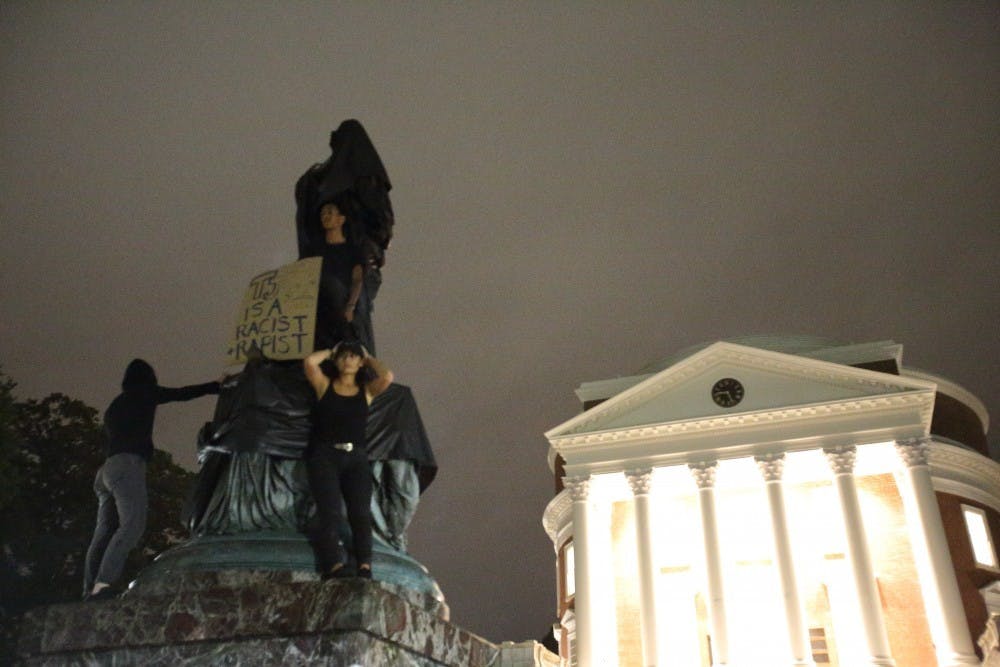University Dean of Admissions Gregory Roberts issued a statement Feb. 23, affirming that the University would not penalize applicants who participated in peaceful civic protests over gun violence. His announcement of support joins other universities who also reassured their prospective students that any disciplinary action taken against them wouldn’t ruin their chance for admission. On Feb. 14 there was a mass shooting at Marjory Stoneman Douglas High School where a gunman used an AR-15 assault rifle to kill 17 people. Soon afterward, a national conversation began about gun control, as it always does in the aftermath of such tragedies. In response to the shooting, the Women’s March Youth EMPOWER initiative organized a national school walkout for March 14. This is the demonstration that Gregory Roberts is referencing. His words, though encouraging, could mislead potential applicants that student activism is fully supported by University administration.
Across the country, students have chosen to use their voice against this country’s gun control laws — or lack thereof. Since the shooting, there has already been some action in the name of stricter gun-control legislation. On March 14 at 10 a.m., students, faculty and supporters around the country plan to walk out of their schools for 17 minutes, honoring the victims. On March 24, these efforts will continue in Washington, D.C. with the March for Our Lives rally. There has been tremendous support from celebrities like George Clooney, Oprah Winfrey and Steven Spielberg — who have donated money to the cause — and companies like Lyft, who offered free rides to protesting students.
In anticipation of the protests, some school officials — including a superintendent in a Houston-area district — threatened students with suspension if the students engaged in protest during school hours. In response, the National Association for College Admission Counseling created a digital resource for universities to record their admission practices, appeasing students’ fears of admission penalties. Roberts’ statement functions much in the same way, except there may be limitations to administrative support once a student is admitted.
The University experienced its own wave of student activism in the aftermath of the events on Aug. 11 and 12. The Black Student Alliance created a list of 10 demands, signed by various student groups and read at the “March to Reclaim our Grounds”. A month after white supremacists gathered for the Unite the Right rally, a group of students, faculty and Charlottesville community members gathered in protest. A tarp was used to cover the Thomas Jefferson statue in front of the Rotunda and a sign was placed on top reading, “TJ is a racist and rapist.”
President Sullivan sent two very different emails in response to this event — one to the University community and the other to alumni and donors. She denounced the students’ actions in both emails — a move that left some involved feeling “unsupported and slandered.” In her emails to students, Sullivan spent a lot of time talking about the University’s founding father, her Commission on Slavery, the Memorial to Enslaved Laborers and the renaming of buildings. Her alumni email painted the events as the doings of drunk students and asked alumni to reminisce on the protests they may have engaged in during their time on Grounds. The student activist group involved refuted some of the claims that Sullivan made in her email to alumni, stating that she had a flawed understanding of the events that unfolded. Protestors were not satisfied with the response and wished that their demands be taken seriously. This administrative response widely differs from what the University is telling prospective students now.
In his statement, Roberts stated, “we seek students who fight for what they believe in and strive for justice, equity, and peace.” He emphasized that student activists “need and deserve our respect and support.” Jeannine Lalonde, assoc. dean of admissions, said that Robert’s statement was for student civic engagement in general, not only in response to the shooting in Parkland. Lalonde stated that, “to me it almost seems obvious that a school, with our founder, would support protests.” Though this is “obvious” to Lalonde, Tom Katsouleas, executive vice president and provost, sent an email to faculty and staff stating that the University administration would not absolve current students from the consequences of their participation in protests. Katsouleas encouraged students to express themselves in “appropriate, peaceful ways in line with student activism that has been seen and applauded in the past.”
Encouraging some student activism over others is unfair. Students should be able to decide what they would like to protest and how they would like to do so. Gun control is a big issue for this country, but it is not the only issue that we face. The walk-out has nothing to do with the University itself, but applauding specific topics and forms of protest over others does not promote open civic engagement for students. The conflicting statements from the Dean of Admissions and the Provost do not send a clear message to potential students or student activists. Students should be encouraged to stand up no matter if they are applying or currently enrolled in the University, or whether the administration agrees with the issue at hand.
Zari Taylor is an Opinion columnist for The Cavalier Daily. She can be reached at opinion@cavalierdaily.com.






